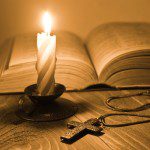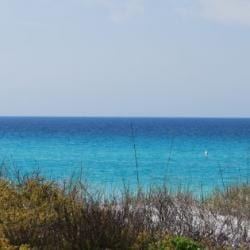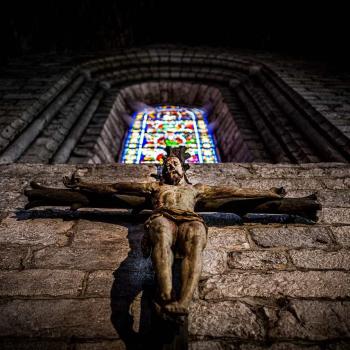A reader of this blog writes to me:
Hi Carl. I was reading Richard Rohr’s The Naked Now and in one of the footnotes he lists a number of “non-dualistic” writers he thinks are worthwhile. Some of the names I know, others I’m not familiar with. For instance: Bede Griffiths, Bruno Barnhart, Laurence Freeman, Ruth Barrows, Bernadette Roberts, Eckhart Tolle, Jean-Yves Leloup, Sebastian Painadath, Hugo Enomiya-Lasalle, and Ken Wilbur (I’ve heard of him, just haven’t read anything by him). Who on this list would you recommend? Any you’d avoid? Thanks.

Alas, I missed that footnote when I read the book! I’m assuming you are referring to footnote #45, at the top of page 186; the footnote refers back to Rohr’s chapter “The Lost Tradition” where he talks about how, thanks to Merton, we are reclaiming the contemplative/nondual wisdom tradition that has been largely lost or marginalized in the Christian community for the past several centuries.
Anyway, Rohr lists a few names in addition to the ones you’ve mentioned, so I’ll include all the names from footnote #45 here. I’m not familiar with all these folks, so my comments will be limited in some cases to “this book looks interesting.” But for the ones I know, I’ll give you my opinion, for what it’s worth. And then I’ll add a few extra names I think he should have listed as well. Happy exploring!
Rohr says each of the following writers “in their own way are recovering the older tradition today.” I don’t suppose that any of these writers (at least the ones I know) are necessarily to be avoided, but there’s at least one whose work I would put at the bottom of any to-read list. So let’s just say some are better than others. And at least one of the ones that I’m (as yet) unfamiliar with looks good enough for me to have just ordered a book from Amazon. So here are my thoughts, uncensored and unpolished…
- John Main — Founder of the World Community of Christian Meditation, a Benedictine monk and pretty much universally respected in the contemplative community. Orbis has published an anthology of his Essential Writings.
- Bede Griffiths — A student of C. S. Lewis who moved to India and explored the resonance between Hindu spirituality and Christian mysticism. Quite an important figure. A large anthology of his principle works is out of print, so start with the Orbis Essential Writings.
- Thomas Keating — One of the three principle founders of the Centering Prayer movement, and now its beloved elder statesman. His most popular works are Open Mind, Open Heart and Intimacy with God.
- Cynthia Bourgeault — A disciple of Keating and Barnhart who has become quite popular in her own right. For her insight into nonduality, try The Wisdom Jesus.
- Bruno Barnhart — a Camaldolese monk, Barnhart is known for his advocacy of Christianity as a wisdom tradition (what he calls “sapiential Christianity”). Check out Second Simplicity: The Inner Shape of Christianity. I would recommend putting his works toward the top of your to-read list.
- Laurence Freeman — A Benedictine monk, student of John Main, and the current director of WCCM. I’ve only read articles of his, but as for his books, Jesus: The Teacher Within looks interesting.
- Ruth Burrows — British Carmelite nun. At least one monk in Conyers considers her a favorite author. The one I’ve read, Guidelines for Mystical Prayer, is out of print and hard to find, but well worth checking out.
- Bernadette Roberts — Former Carmelite nun best known for her book The Experience of No-Self. I haven’t read her, but I know she was popular among contemplatives back in the ’80s when her books were first published. From what little I know of her work, she seems to have affinity with Meister Eckhart (who, as you know, is one of the great Western nondual thinkers of the past).
- Eckhart Tolle — This guy is incredibly popular, but I just haven’t been able to get into him. Perhaps it is the condescending tone of the very first line of his most popular book, The Power of Now: “I have little use for the past and rarely think about it.” My response to such a statement, as someone who loves the past and enjoys connecting with the wisdom of the great nondual thinkers of previous centuries, is to figure I’d rather spend time with the other Eckhart (Meister) and not worry about this guy. And then he goes on to brag about living “in a state of uninterrupted deep peace and bliss” for a period of five months after his enlightenment. Yeah, right. It’s hard to keep reading with my eyes rolling! Still, Rohr admires him, and he is quite popular, so apparently he has done much to make nondual spirituality appealing to the masses in our time. I just think of all the writers mentioned in this post, he belongs at the bottom of your “to-read” list. Since his endorsement by Oprah Winfrey there has been quite a push-back against Tolle from conservative Christians, who accuse him of being a latter-day gnostic; but since I haven’t read very much of his writing, I don’t feel qualified to comment on that (as we know, many Christians are biased against mysticism in general, so that may be part of what is fueling the backlash). For what seems to be a balanced assessment of Tolle from a mainstream Catholic perspective, read this article from NCR: Eckhart Tolle’s Message is Positive. But is it Christian?
- Jean-Yves Leloup — French Orthodox writer who apparently is an interfaith activist and a scholar of apocryphal texts. The only work I’ve read is Being Still, which interestingly was translated into English by Martin Laird. It’s a collection of essays on Orthodox spirituality, and is worth the read.
- Sebastian Painadath — Not familiar with this guy; what I found online is that he’s an Indian Jesuit and, like Griffiths and Abhishiktananda, the founder of a Christian ashram in India. Here is an essay of his available online: The Spiritual and Theological Perspectives of Ashrams.
- Hugo Enomiya-Lassalle — a German Jesuit priest who lived from 1898 to 1990 and was involved in Christian-Buddhist dialogue; remarkable in that he was in Hiroshima during the nuclear blast and was severely injured. I haven’t read him, but he sure looks interesting. Check out Living in the New Consciousness. I just ordered my copy from Amazon!
- Ken Wilber — Wilber is not a Christian, he’s an integralist whose own practice emerges out of Buddhist meditation. But he is widely respected for his creative work at demonstrating the patterns of coherence between different mystical traditions from around the world, as well as charting how mystical wisdom can be embedded into a science-friendly map of the cosmos. I’ve been a fan of his for some twenty years now, and while I have my arguments with him, I think Wilber’s ideas are essential for anyone interested in a trans-cultural understanding of the contemplative experience. Start with A Brief History of Everything to get a basic, accessible introduction to his thought..
In addition, I would recommend checking out these folks as well:
- Abhishiktananda — Born Henri Le Saux, a French Benedictine who travelled to India and studied under the Hindu Sage Ramana Maharshi. His book Prayer is an excellent read.
- Anonymous (“A Monk of the West”) — author of Christianity and the Doctrine of Non-Dualism.
- Sara Grant, RSCJ — Scottish nun who traveled to India in 1956; associated with Abhishiktananda. Her book is called Toward an Alternative Theology: Confessions of a Non-Dualist Christian.
- Martin Laird — Perhaps the best living author on Christian contemplation. Yes, that’s high praise, but he deserves it. When you are tempted to read Eckhart Tolle, read (or re-read) Laird instead. Both his Into the Silent Land and A Sunlit Absence are essential.
- Ramon Panikkar — former Jesuit who became world renowned as a philosopher of Hindu-Christian dialog. Just brilliant. Start with his masterpiece, Christophany.
There you go. Enjoy the journey.
Enjoy reading this blog?
Click here to become a patron.














